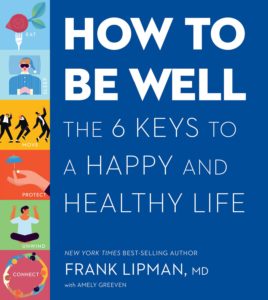I am pitched on a range of products and protocols that are intended to be good for you. They claim to improve your health and well-being. I keep an open mind, but I always peer into the science behind the statements. I question, “How does this work for women of all ages and backgrounds and when does it not appropriate for someone?”
I’ve been schooled in the “not one diet fits all” theory of healthy eating. There are general guidelines to follow: eat more plants, leaner protein, and better fats; consume less sugar and simple carbohydrates; avoid processed foods; drink alcohol in moderation and practice healthy hydration. But how and when you eat can be as important as what you eat.
Recently I spent time with a friend who practices intermittent fasting which involves stretching the time between meals, ideally 16 hours and as little as 12 if it feels too intense. For example, you finish breakfast at eight in the morning; eat dinner at 7 and then breakfast at eight the next morning.

Illustration 132520750 © Leyasw – Dreamstime.com
Integrative medicine specialist, Dr. Frank Lipman, writes in his book, How to Be Well: The 6 Keys to a Happy and Healthy Life “that intermittent fasting “lets your body enter a prolonged ‘fasting state’ and signals your body to burn fat that is stored on the body. It also allows your body to experience a longer-than-normal period of low insulin in the blood. This tells your body to burn energy and keep your insulin level low, which is a powerful reset and the opposite of what happens with a constant stream of food.” Dr. Lipman also underscores that intermittent fasting “is not a promise of sudden weight loss. It’s about reducing the hormones to return to more regulated functioning as part of longer term weight loss protocol. ” He noted that intermittent fasting should be practiced one or two days a week for basic preventative measures.

It all sounds good, but following my friend’s schedule going without food all day, made me dizzy, foggy, fatigued and very cranky by 1:30 p.m. Intermittent fasting may be beneficial for some, but my body clock needs food at certain times of the day to keep ticking.
Maybe what make sense in theory doesn’t make sense for me personally. The same may apply to you.
I feel the same way about other health-related activities that may be good for many, but not all. Crossfit and weight lifting may strengthen your body, but some people (including me) may have physical limitations. Intensive face and body scrubs and peels may leave your skin soft and smooth, but they leave my sensitive skin red and scorched.
The same goes with supplements. Some may be beneficial, but you have to consider your personal health and factors such as whether you are pregnant or breast-feeding, have a history of certain types of cancer, diabetes, a heart condition or other major illness, are in menopause or planning to have children, etc. Some supplements can interact with prescription medications, and we know almost all prescription medications have some type of side effects.
Before making any extreme changes to how you eat and what you ingest, consider your age and health history and consult with a specialist first. If s/he recommends any supplement for a condition you have, ask how long you need to stay on it and correct dosages, how it interacts with foods or medications you are taking and any short-and-long term side effects. And question whether you need it at all. Pills do not replace healthy habits.
To sum it up: Not everything that is considered “good” for you is necessarily “right” for You Everyone is different. That’s why I urge caution when trying the latest diet trend, supplement, ingestible powder, or elixir without doing your homework. You could be wasting your money or, potentially, hurting your health and not improving it.
Think of it this way: Would you get a haircut or change the color without consulting with your stylist to address your complexion type, hair texture, face shape and maintenance? Would you invest in a financial plan without finding a trusted adviser to evaluate your current situation and long-term goals? So why would you spend money trying diets, pills and products that you read about without consulting a health and wellness specialist to see if they are both good for you and right for you?


Fearless Fabulous You! airs Wednesdays, live at 12 noon EST on W4WN- The Women 4 Women Network and is permanently podcast to iHeart, free iHeart App, iTunes and other major podcast platforms. Make healthier choices for a happier You!
Dr. Frank Lipman joined me on Fearless Fabulous You! February 27 on W4WN.com
Here is the link to the show on iHeart.com
Or click this image to listen:
Buy Dr. Frank Lipman’s book, “How To Be Well” on Amazon. Click here:









